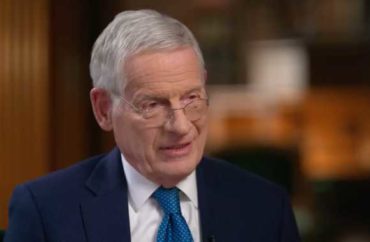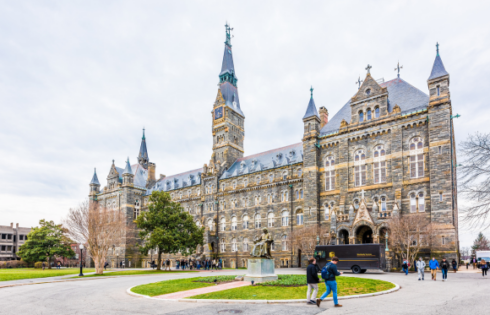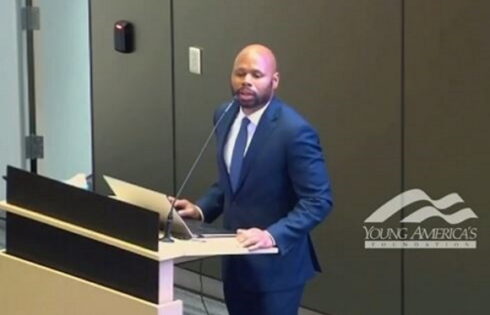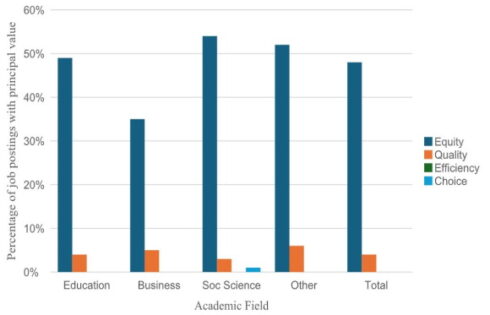
Self-censorship means avoidance of offense in the name of justice, but also precludes the pursuit of justice
“Make a life for yourselves that you can be proud of,” Professor Harvey Mansfield told the Harvard Class of 2023 in an op-ed published recently in The Harvard Crimson.
Mansfield reflected in his piece on what those who aim for such a life might have to lose from being woke.
It is the number one “Most Read” article on the Crimson’s website as of this writing.
Mansfield “has hardly left Harvard since his first arrival in 1949, and has been on the faculty since 1962,” according to his university biography. He earned his undergraduate and PhD degrees at Harvard and has taught government and political philosophy at the university for more than five decades.
He is “the most visible conservative professor on campus,” The Crimson wrote in 2022.
One thing the woke lose, Mansfield suggested in his 2023 op-ed, is the unfettered pursuit of justice, because such conversations might offend. Students must self-censor speech that may offend others in certain ways.
“The punishment for not censoring yourself is to lose the company of fellow students and to be disregarded and shunned,” he wrote. “You are not put in jail, as happens in Iran and other countries, but you are deprived of the fellowship you want from college life.”
Wokeness means the need to restrain one’s speech and creative activity in private even more than in public, Mansfield wrote. It means scrupulous avoidance of certain words, phrases and ideas and enthusiastic adoption of new ones.
Harvard students “must learn the new expressions and learn to like them,” Mansfield wrote. “They must consent to the kind of censorship that actually puts words in your mouth.”
The new expressions, and all speech, must affirm individuals fashioning their identities and groups that demand their alleged enemies’ names disappear.
“Today, self-expression has much greater sway than self-control,” according to Mansfield. “To be free, it is said, you must be able to express yourself and be safe while doing so.”
“To express yourself fully means to fashion your own identity. And to do that, the danger of being offended in your identity becomes a vital point.”
The minor (or micro) potential offenses which one must self-censor “loom as large as major ones that are rare,” Mansfield wrote.
“Self-expression permits, even requires, that the names people use be inspected for the harm they cause,” he continued.
“Once respected names like Woodrow Wilson and John Winthrop may need to be abandoned and tossed into the trash can of non-history. Pronouns, too, need to be revised so as not to offend persons formerly known as women; no more impersonal he or him, no more chairman or freshman.”
Paradoxically, those who object to such changes must be taught that “justice overrides” their own sense of offense, which is not justified. This balancing act of offense-avoidance and offense-suppression, both necessitating self-censorship, restricts conversation with others.
“Instead of arguing the point, one begins to search for character defects and pounce when they are found,” Mansfield wrote.
“You blind yourself by taking offense because in doing so you are led to simplify the justice you think is so unquestionable,” he said. “Instead of thinking about what justice might require, you try to shame opposition out of existence.”
“Believing that justice is easy to think, you begin to believe it is easy to apply,” he continued:
You conclude that slavery was as easy to abolish as to denounce today after it is abolished. You regard those who gave their lives in a Civil War to gain that end as less just than we are now, bravely changing names and pronouns. You agree that Harvard has a legacy of slavery rather than the legacy of anti-slavery you can see every day with a glimpse of Memorial Hall.
After 60 years as a professor of government, thinking about what justice might require, Harvey Mansfield retired. He taught his last class this past semester, Harvard Magazine reported.
“Now, facing my 70th reunion, it must be time to calm down and retire, accepting my own self-censorship,” Mansfield concluded in his May Crimson essay.
Mansfield told his students in his very last class, a session of “The Political Science of American Democracy” on April 20, that he he hoped to write a new book on partisanship.
“If God gives me the time for it,” he said.
MORE: Conservative Harvard professor still fighting at 90-years-old
IMAGE: Hoover Institution/YouTube
Like The College Fix on Facebook / Follow us on Twitter






Please join the conversation about our stories on Facebook, Twitter, Instagram, Reddit, MeWe, Rumble, Gab, Minds and Gettr.